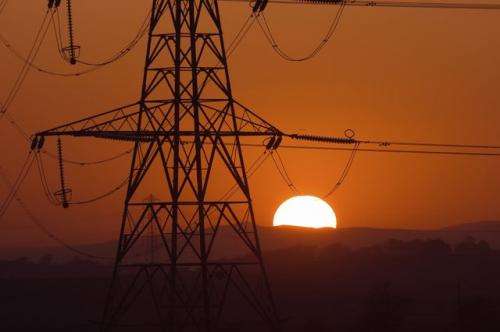Expanding customer access to energy data can bring cleaner, more efficient power to Californians, save money and boost emerging clean technologies, according to a new report by the Climate Change and Business Research Initiative, a partnership between the UCLA School of Law's Emmett Institute on Climate Change and the Environment and UC Berkeley School of Law's Center for Law, Energy and the Environment. Greater access to the data can also help the state meet the ambitious environmental goals recently outlined by Gov. Jerry Brown in his fourth inaugural address.
The report, "Knowledge is Power: How Improved Energy Data Access Can Bolster Clean Energy Technologies & Save Money," provides a set of recommendations to improve access to energy data for businesses, residential customers and clean-technology vendors. The findings are the result of a July 2014 workshop during which clean technology leaders and public officials developed policies to make energy data more accessible and secure.
"The state has aggressive environmental goals that require significant improvements in energy efficiency, renewable energy and electric vehicle deployment," said report author Ethan Elkind, associate director of the climate change initiative at UCLA and UC Berkeley law schools "Facilitating access to energy and market data—which can now be anonymized and aggregated without compromising customer privacy—can enable a host of more efficient and cleaner energy solutions, while also making it more economical for California to reach Gov. Brown's climate change goals."
The collected, anonymous data, along with detailed electric grid network information, is particularly useful for businesses and clean-technology companies, according to the report. Also contributing to the report were Sean Hecht, executive director of UCLA's Environmental Law Program, and Cara Horowitz, director of UCLA Law's Emmett institute. Steven Weissman and Jordan Diamond of the UC Berkeley School of Law also participated.
If customers have easier access to their own long-term utility usage patterns, they can better evaluate their energy use and select targeted, cost-effective energy efficiency measures, the author pointed out.
For example, energy storage developers would be able to use detailed electric grid information to help specific customers reduce their energy use at times of high demand, leading to cost savings and less stress on the grid. Electric vehicle automakers, for one, could more easily help customers determine the optimal vehicle charging time based on rate structures and price signals from the grid, resulting in lower fuel costs.
But accessing and organizing energy data take time, money and often a willingness to participate. Importantly, any disclosures must include careful procedures to protect customer privacy and security, Elkind said.
The report identifies a number of solutions to overcome such barriers to information access, including establishing independent, secure, energy data centers and cost recovery mechanisms for utilities to collect and share anonymous information.
More information: "Knowledge is Power" is available online: webshare.law.ucla.edu/Emmett/c … owledge-is-power.pdf
Provided by University of California, Los Angeles






















